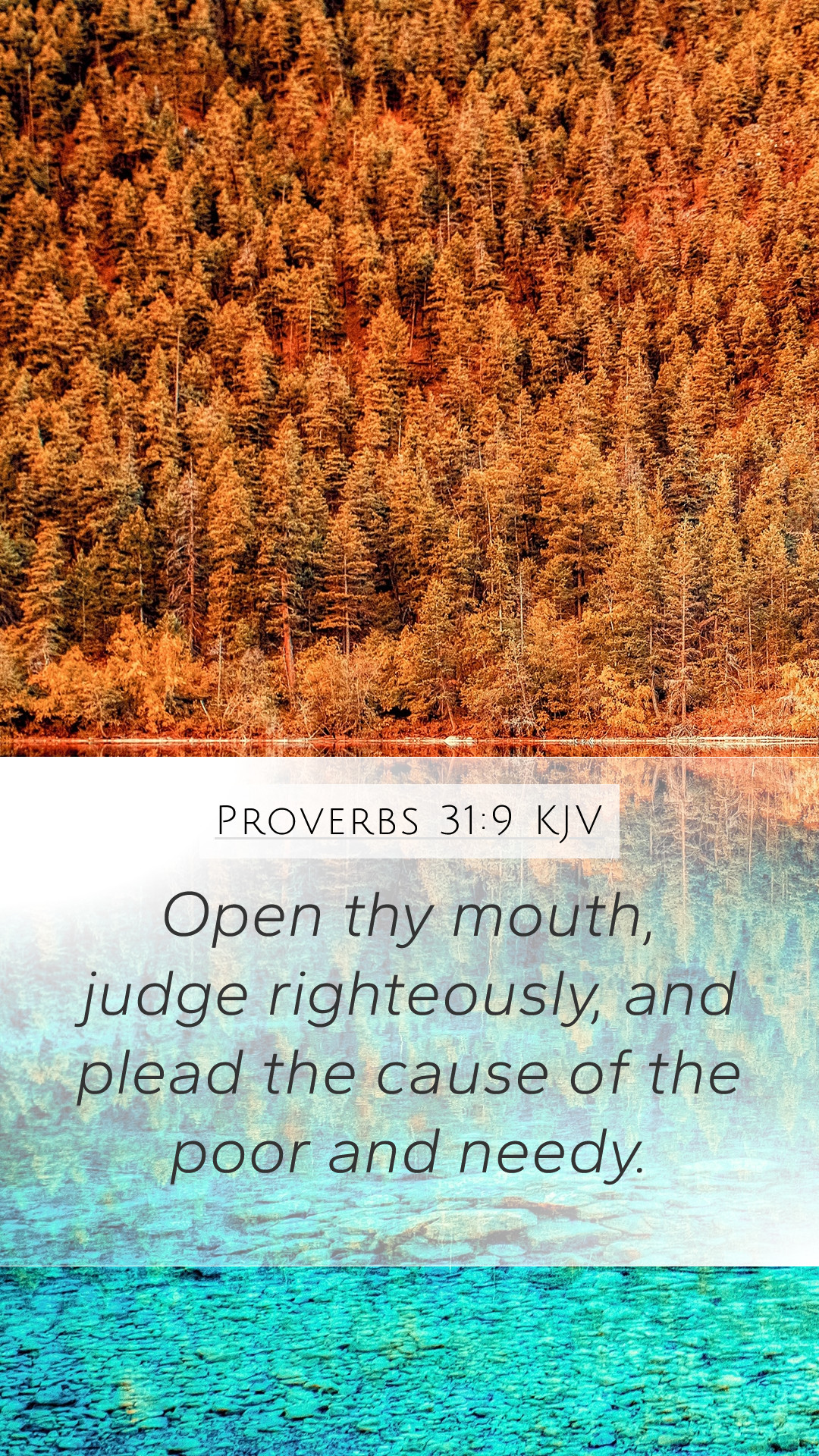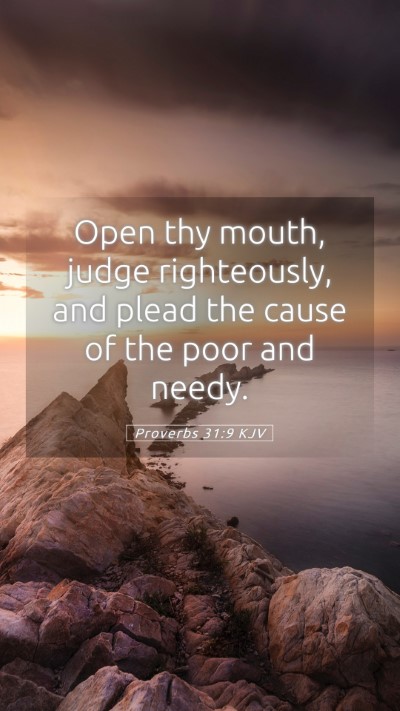Understanding Proverbs 31:9
Proverbs 31:9 states: "Open thy mouth, judge righteously, and plead the cause of the poor and needy."
This verse serves as an exhortation for just and compassionate behavior, particularly towards the vulnerable in society. It emphasizes the importance of speaking out and advocating for those who cannot advocate for themselves.
Key Insights from Public Domain Commentaries
-
Matthew Henry:
Henry emphasizes the need for justice in our discourse. He explains that speaking rightfully—a significant responsibility—necessitates integrity in judgment and concern for the less fortunate. By advocating for the disadvantaged, one fulfills a duty not merely to the individual but to society as a whole.
-
Albert Barnes:
Barnes elaborates on the importance of righteous judgment, noting that it reflects God's character. He highlights that to judge righteously means to act without partiality and with a sincere heart in all dealings. This judgment is especially pivotal when interacting with the poor and needy, as they often lack the means to fight their own battles.
-
Adam Clarke:
Clarke asserts that this verse calls for action from the righteous and encourages believers to be advocates for those who suffer injustice. He reflects on the role of leaders and those in power, reminding them that they are called to protect the rights of the underprivileged and maintain fairness in their judgments.
Bible Verse Commentary
The verse can be understood as a call to engage actively in the pursuit of justice. Righteous judgment is not passive; it requires believers to take a stand and articulate the rights of the poor. The act of pleading their cause signifies an obligation to ensure that injustice does not prevail.
Application in Daily Life
In applying the teachings of Proverbs 31:9, individuals are encouraged to assess their environments—be it in personal relationships, workplaces, or community interactions—and seek to uplift those who are marginalized. This enactment of righteousness is vital for everyone, particularly those in positions of authority.
Historical Context
Proverbs as a whole is a collection of wise sayings, often attributed to King Solomon. This context adds weight to the instruction provided in 31:9, showcasing the significance of wise governance and the moral responsibilities of leaders in society.
Cross References
- James 1:27: "Pure religion and undefiled before God is this: to visit the fatherless and widows in their affliction, and to keep himself unspotted from the world."
- Isaiah 1:17: "Learn to do well; seek judgment, relieve the oppressed, judge the fatherless, plead for the widow."
- Psalm 82:3: "Defend the poor and fatherless: do justice to the afflicted and needy."
Further Study and Reflection
This verse invites reflection on one’s personal biases and societal roles. Engaging in Bible study groups or participating in online Bible study can provide further insights into how to embody the principles of this verse. Using Bible study tools such as commentaries and devotional materials can deepen understanding and encourage application.
Conclusion
Proverbs 31:9 emphasizes a critical aspect of ethical living and divine justice. Through righteous judgment and advocacy for the needy, believers can reflect God’s character and fulfill their calling in society. Engaging deeply with Bible study lessons and resources allows for a better understanding of how to live out these principles effectively in today's world.


